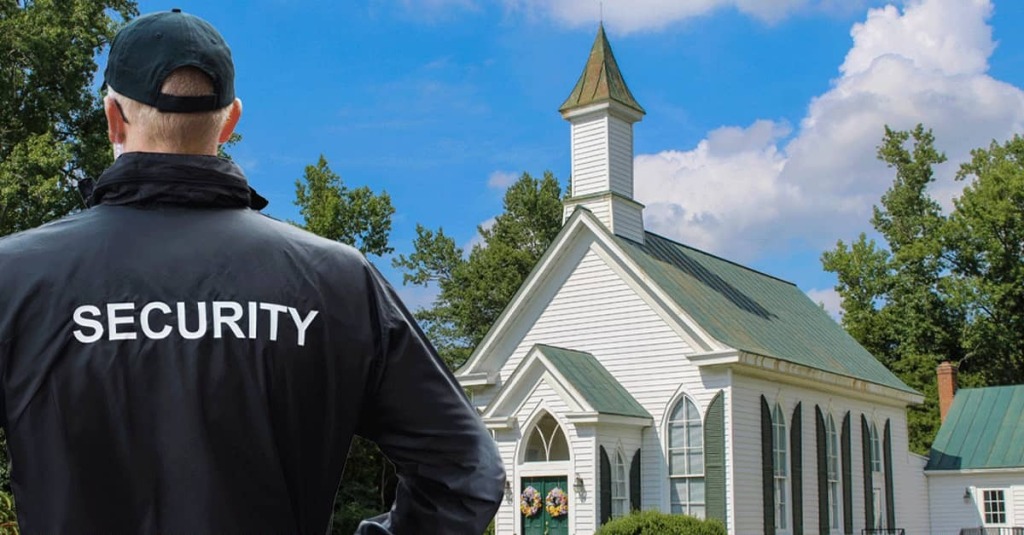“Conservative Christians are staying silent, not because they are scared of being canceled or mocked, but because they don’t feel equipped to defend their beliefs in public. And one of the reasons that the people in the pews don’t have the confidence that they should is because the men in the pulpits aren’t speaking up either.”
–WILLIAM WOLFE
In one of his classic works on Christian apologetics, theologian Francis Schaeffer packed the main point of the entire book right into the title: He is There and He is Not Silent. The “He” here is, of course, God. What Schaeffer means by the fact that God is not silent is that God has spoken — He has revealed Himself to His Creation through words, or rather through The Word, Jesus Christ in the flesh.
As His creatures, we don’t have to guess about what God wants from us. He told us. He had it written down. He gave us an entire book — the Bible! Schaeffer writes that “The infinite-personal God is there, but also he is not silent; that changes the whole world.”
If it changes the world, and it does, that means that it should at least loosen our tongues as Christians living in this world.
Decades later, Albert Mohler picked up on Schaeffer’s apologetic theme and turned the message around on Christians in his book We Cannot Be Silent: Speaking Truth to a Culture Redefining Sex, Marriage, & the Very Meaning of Right & Wrong. In it, Mohler argues a major, “morality-changing” storm has swept across America, transforming the political landscape in horrifying new ways. In response, Christians must speak up. He writes:
“We cannot understand our times without looking honestly at the moral hurricane sweeping across our culture, leaving very little untouched, if not radically changed, in its wake. But understanding is just a start. When it comes to marriage and morality, Christians cannot be silent—not because we are morally superior, but because we know that God has a better plan for humanity than we would ever devise for ourselves. Beyond that, we cannot be silent because we know that Jesus Christ is Lord and that he came to save us from our sins. We cannot rightly tell people about the gospel of Jesus Christ if we do not speak rightly about sin and its consequences.”
Because God is there, and He is not silent, then we, as His people, cannot be silent either. We must speak up, and speak out, in defense of the Christian faith and comprehensive truth claims.
James Garlow, in his book Well Versed: Biblical Answers to Today’s Tough Issues, continues the chain of exhortation for sleepy, silent Christians to break out of their stupor and shout — okay, maybe not shout, but at least speak up — on behalf of Christian truth in the public square.
In the chapter “Why Are We Quiet?” Garlow shares some interesting polling data which reveals three things we need to take to heart.
First, data shows that, of all groups, “People who label themselves conservatives do not speak up.”
Second, this is because “According to the survey, they are quiet for one reason: they do not know what to say! They do not know how to state a biblical basis for their convictions…The results revealed that theologically and politically conservative people hold deep convictions. They simply are not sure how to convey those beliefs.”
Third, and this is particularly important for pastors and Christian leaders, further polling data showed that “people want their churches and pastors to speak up on the social and political issues of the day.”
What does all this mean? It means that conservative Christians are staying silent, not because they are scared of being canceled or mocked but because they don’t feel equipped to defend their beliefs in public.
And one of the reasons that the people in the pews don’t have the confidence that they should is because the men in the pulpits aren’t speaking up either; pastors aren’t equipping their members to tackle the toughest topics in our world by teaching them what the Bible has to say about politics.
Garlow argues that it’s time to shatter this silence. I agree.
He goes on to rightly pinpoint one of the main muzzlers of pastors in the pulpits over the last many decades — the Johnson Amendment. Passed in 1954, this constitutionally dubious law “inadvertently made it illegal for a pastor, because of his affiliation with a not-for-profit organization, to endorse or oppose a candidate in a sermon.”
Because of the ambiguity in the law, though, many pastors thought this meant they couldn’t talk about any political issues from the pulpit. Unfortunately, this means that many pastors have failed to speak up about the evils of abortion and pro-abortion politicians, or against homosexual marriage, or now the transgender movement, because they are afraid of “getting political” when standing behind the pulpit.
But, as Garlow explains, in over 60 years of having the Johnson Amendment on the books, “the IRS has not taken a single church to court.”
Why is this? According to Garlow, “The presumed answer is that the IRS does not want the Johnson Amendment to be scrutinized in the light of the U.S. Constitution, as it would most certainly be thrown out. However, for over sixty years, this unconstitutional law has been used to bludgeon, silence, censor, and muzzle pastors.”
This confusion has had catastrophic results on our society. Garlow laments that “A silent pulpit means a silent pew. A silent pew produces an uninformed electorate. An uninformed electorate will not know what the One who created civil government has to say about how it should be run.”
Garlow touches on a crucial point here that many Christians have forgotten: The government doesn’t get to say what God’s boundaries are, God says what the government’s boundaries are! God isn’t accountable to the government; no, governments are accountable to God.
God is not silent. He has spoken, clearly, about all of the most fundamental political issues which will ever exist in human history: life, family, marriage, justice, religious liberty, sexual morality, speech, and mankind’s common good. As Garlow explains,
“The Bible speaks to every important issue of life. After all, it was God who came up with the idea of government. He established it and has clear principles about every major issue facing our nation or any nation. The Bible even uses the strong metaphor to say of Jesus: ‘The government will be on his shoulders’ (Isaiah 9:6).”
Johnson Amendment or not, it’s time for Christians to stand on God’s Word and speak the truth in the public square. And in order for Christians to do this well, their churches must equip them to bring the Bible to bear on the most pressing issues of our day.
God is not silent. He is not quiet. So, we cannot be quiet either. As Jerry Falwell Sr. once said,
“The idea that religion and politics don’t mix was invented by the Devil to keep Christians from running their own country. If [there is] any place in the world we need Christianity, it’s in Washington. And that’s why preachers long since need to get over that intimidation forced upon us by liberals, that if we mention anything about politics, we are degrading our ministry.”
Pastors must speak to politics because God speaks to politics in His Word. The Gospel is a message about the Savior, yes, but a Savior who is the King of all the Universe. Our discipleship as followers of Christ extends from Sunday School to the voting booth, and everywhere in between.
Consider these words from Proverbs as I close, and remember, whenever you can and wherever you can, speak truth from the Bible to the topic of politics in America. Because if God is not silent, we cannot be silent, either. And if God was willing to speak to us, we can find the courage to speak up for others, to “Speak up for those who cannot speak for themselves, for the rights of all who are destitute. Speak up and judge fairly; defend the rights of the poor and needy” (Proverbs 31:8-9).
Follow William on Twitter! @William_E_Wolfe
Ready to dive deeper into the intersection of faith and policy? Head over to our Theology of Politics series page where we’ve published several long-form pieces that will help Christians navigate where their faith should direct them on political issues.





